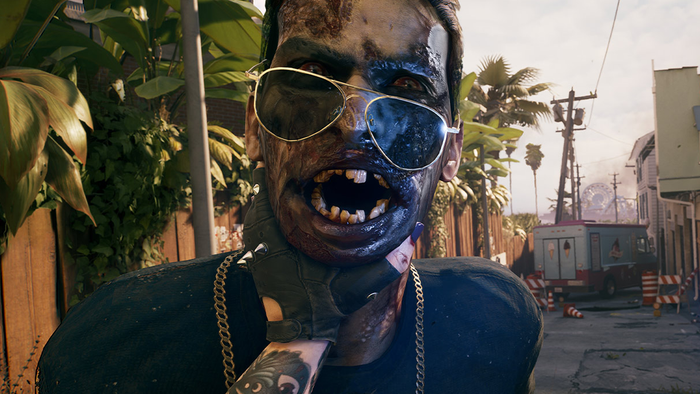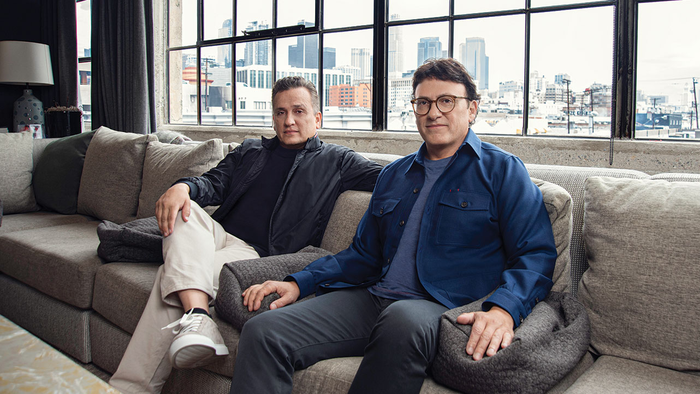
Featured Blog | This community-written post highlights the best of what the game industry has to offer. Read more like it on the Game Developer Blogs.
You all suck at networking
Okay, so perhaps not all of you suck at networking, a lot of you are pretty good at it, probably even better than I am. But I do see a lot of people asking questions about getting jobs, finding publishers, getting access to platforms and stuff like that.

Okay, so perhaps not all of you suck at networking, a lot of you are pretty good at it, probably even better than I am. But I do see a lot of people asking questions about getting jobs, finding publishers, getting access to platforms and stuff like that. Only to read/hear that all they did up until now was make a game/draw something neat/write a story and magically hope someone will know about it and be interested.
I'm annoyed by disgruntled (mostly) ex-students that tell the world the game industry has no available jobs, they were lied to about working in the industry, the industry is one big clique that only allow friends to enter, etc. They annoy me because they apparently are not shy to talk about their feelings to big (anonymous) crowds, but didn't put in an effort to actually work their way into the industry. Because it's not as hard as they make it out to be.
Getting a job or a publisher, or basically anything you need, all comes down to building up your network: having people know you exist and know what you do. You can be a brilliant artist, a genius designer or a prodigy developer, but if you don't tell people about your work, show them what you made and talk to them, how are they supposed to know you exist?
So what I'm going to talk about in this blog are some tips on how to present yourself, how to extend your network and how to improve your standing in the industry. Everyone can do it, but it will be uncomfortable (especially in the beginning) and it will be a lot of work. It will make you vulnerable, but those are the sacrifices everybody made that currently works in the game industry.
The reason and goal of networking
What networking really is, is just getting to know as many people as you can, in as many different fields of expertise as possible. There is no use as an artist to just know more artists. Not that it's wrong, it can add a lot to your skillset and knowledge about your craft. But a network is about being able to flexibly call upon a friend when you're in need of something that you didn't know you needed a week ago.
You need a job, you need to know some people that can tell you about job openings, or offer you one, because they're familiar with your skills and workflow. If you need a publisher; you need to know someone who works as a publisher or who can introduce you to a party that fits best. If you need a programmer for your project; good thing you talked to that awesome coder that told you he was always looking for cool projects to work on. There are countless of different needs in the industry and for every niche skillset there is a person with experience and connections. Besides, you'll be making a lot of friends as well, isn't that great?
So where do I meet people?
Lucky for you the game industry is a place where people love meeting each other. There are countless of small meet-ups, industry events, networking events, etc. Everyone always loves meeting new people and old friends. So there are plenty of possibilities for most of you to connect. You just have to go everywhere possible. Most big cities around the world have their so called gamedev scenes. That basically means a lot of people that are aware that they're all making games in the same area and have a common ground to meet up. As said, game developers LOVE gatherings. Most of them are free and easy to find with the help of Facebook and Twitter. If you're not in a big city, or near one, or your city doesn't have a gamedev scene, then it will be slightly harder, but not impossible. You can talk to and get to know a lot of people over the internet via Social media (Facebook, Twitter, Slack, Reddit, Skype, etc) and save up for a view bigger events that you can attend and meet online friends and new people in real life. If you can spare the money, attend events like GDC, Casualconnect and bigger game events (both industry and consumer) in your country. These are the best places to meet people from lots of different areas of expertise in the game industry. Also: these events tend to have a lot of after-parties near the main venue where you can casually chill and mingle with people that share the same passion. Both industry veterans and students alike.
How do I talk to strangers?
Say you're actively making the effort to go out and meet people in the industry. Great, that's the first step. A lot of people go to meetings and events and end up talking to people they already know the entire time. Which I understand, it's great to meet up with friends and see what they're up to and it feels safe to talk to someone you know. But isn't it a waste to spend your time not extending your network at places that are organized to actively extend your network and meet new people? It's scary to step up to someone you do not know and even more so if they have a big reputation. Just remember that everyone is there for the same purpose, talking and meeting new people. They're all still human and all love interacting with each other. That one guy that made that break-out hitgame loves talking to you as much as to the guy next to you. But if the guy next to you steps up to him first, he's the one making the connection and all you can do is wait for a new opportunity.
Another problem is that you're probably unsure about how to start a conversation, but that's not a valid reason not to start a conversation. Every time you initiate a talk it will probably be awkward, it's the nature of the game. Just remember that it's just as awkward for the other guy as it is for you and he probably shares the same insecurities. After you've found a topic to talk about, the awkwardness will be gone sooner than you think and you made a connection that might bring you one step closer to your goal.
Tip: If you really don't know how to start the conversation. Remember that everyone loves talking about themselves and tell people what they do. They just don't feel comfortable doing it without a reason. So ask them questions about what they do, what they like or what they've made. It's an easy icebreaker and instantly makes them feel comfortable and talkative most of the time. Just be sure to listen and be genuinely interested in what they have to say.
Share your work and experiences!
So now you're talking to new people and making friends. But you still want that job, or get that publisher right? To accomplish that, people will need to know what you can do, what you're working on and how you approach your job on a practical level. Don't be scared to talk about your games, art, etc. If there is the possibility to show it, be sure to do so. Though don't force it, if it's impractical or the person you're talking to seems to rather talk some more, just get their e-mail and ask if it's okay that you send them some work at a later date. This is where business cards come in. They're basically a type of currency in networking. The more you have, the bigger your network is, the better chance of success you'll have. The same goes for the amount of people that have your business card. It's also important to share your experiences that you had with projects that you worked on, because it gives people an insight of how you think and what kind of person you are professionally and it opens up the possibility of having common interests to talk about and transform your connection into a friendship!
Tip: About business cards. Be sure to have enough business cards with you and make them personal. Most of the time people will come home with stacks of them and having a generic business card makes it hard for them to remember you. If you're making a game, put it on the back, as it reminds people of your work more easily.
Follow up!
So you're back home from your networking binge with a neat stack of business cards and other relevant information. You made friends, people know you and you got over your anxiety to talk to strangers. Well done! Now it's time to filter your business cards.
I can only tell you how I personally filter through it, but there are many ways to follow up on contacts you've made. I personally don't have the time to send every one of them an e-mail or other type of message, not to mention the fact that I can never remember them all.
So first I filter through every card to see who I think is necessary to contact for my personal goals on the short term. If I'm looking for a publisher I'd e-mail publishers, I always e-mail press/bloggers and some other useful sources that I didn't know I needed on a short term.
I also add people I had a pleasantly long conversation with on Facebook and Twitter. These are friends I'd rather talk to in a more informal way, an e-mail might come off as a little formal and cold. Though sometimes I do both.
The rest of the cards I keep handy for at least 2 years, because you never know when you need someone, or have to introduce a friend/acquaintance to someone with that particular skillset. After two years the cards become more and more useless as people move on to other companies, change their contact information or probably will not remember you if you haven't talked to them in the past two years.
Tip: When following up, try to recollect the conversation you had and what you took away from it or what you particularly liked. That way you show interest and the other person might remember you better. Always be sure to respond to follow up e-mails that you received yourself, no matter who it's from.
Here's some other useful tips:
– Always be genuinely interested and never pretend to be something you're not.
– Never lie! If you can't do something, don't say that you can.
– Never treat anyone as a tool, always remember that you're talking to a person, not a means to an end, no matter how much you might need their skills/contacts.
– Try not to assume anything about someone you're talking to, it might make the conversation very uncomfortable and you might end up offending someone you'd rather not.
– Try to know who you're talking to if possible (coming from the guy that didn't know he was talking to Tarn Adams until 5 minutes into the conversation...Oops).
– Remember to be proud of your work, confidence is a good trait to have when networking.
– If you talk from experience, you're never wrong. That doesn't mean that someone else's experience can't differ from yours though.
– Don't be afraid to ask for favors or information, yet never forget that the other person has a right to deny your request.
– Don't forget to have fun and make friends!
I hope this information is useful. If you want to ask me something or if you want to share your disagreement with what I wrote, don't hesitate to contact me at steven(at)speelbaars(dot)com or send me a tweet @Ithunn.
Read more about:
Featured BlogsAbout the Author(s)
You May Also Like













